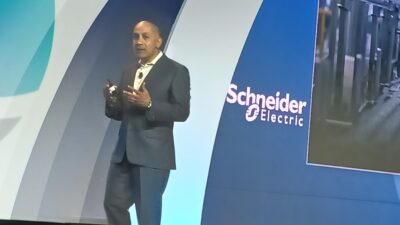Council on Competitiveness recommendations also suggests leveraging R&D, and promoting energy and efficiency initiatives.

The U.S. can lead the world in 21st century advanced manufacturing, at the heart of long-term U.S. productivity and prosperity. How? The U.S. Council on Competitiveness last month released a report and series of recommendations called “Make: An American Manufacturing Movement,” a strategy map, to Congress, the White House, and 50 governors.
Advice was collected from hundreds of Deloitte interviews over nearly three years and dozens of dialogues where Council members and national thought leaders discussed manufacturing topics.
The priority recommendations from the five challenges are:
1. Congress should permanently replace the current worldwide double taxation system with a territorial tax system to facilitate the repatriation of earnings and restructure the corporate tax code to increase investment, stimulate production at scale, and neutralize sovereign tax incentive investment packages.
2. Congress, the administration, and industry should intensify efforts to support the president’s goal to double exports from $1.8 to $3.6 trillion and reduce the trade deficit by more than 50 percent.
3. Federal, state, and local governments—along with high-schools, universities, community colleges, national laboratories, and industry—should prioritize Career and Technical Education (CTE) programs and push for greater integration of community colleges in the innovation pipeline.
4. Congress and the administration should leverage R&D investments across the federal research enterprise to solve challenges in sustainable smart manufacturing systems and to ensure a dynamic discovery and innovation pipeline.
5. Congress and the administration should drive the private sector to develop and utilize all sources of energy on a market basis while enforcing efficiency standards to ensure a sustainable supply of energy to manufacturers.
The report and recommendations, about 60 pages in total, have many more details, created under guidance of Council Chairman and Deere & Company Chairman and CEO Samuel Allen and a steering committee of 60 CEOs, university presidents, labor leaders, and laboratory directors.
In part, the report says, “Smart manufacturing is a growth engine for jobs and a sustainable economy. A $50 billion investment in retooling factories would generate up to $120 billion in revenue resulting from increased demand for products, according to a study by the Apollo Alliance, a business-labor coalition. Manufacturers would achieve higher levels of business performance, turn resources into assets, and discover unique opportunities for competitiveness.”
That’s important, the report says, since the “potential for manufacturing process innovation is enormous. Smart manufacturing is an ongoing effort to integrate many of the trends described in this strategy—such as HPC, cloud computing, data mining, and user-driven customization—across global production enterprises and supply networks. By marrying these technological capabilities with human insight, smart manufacturing promises to revolutionize the way production is organized and delivered. As manufacturing intelligence of this kind grows, it will inspire innovations in processes and products that will unleash new, disruptive capabilities—such as a $3,000 automobile or a $300 personal computer.”
Further, “Smart manufacturing enables a coordinated and performance-oriented enterprise that responds quickly to the customer, minimizes energy and material use, maximizes health and safety, and generates innovation. Today, smart tools and systems that generate and analyze greater amounts of data are being used to plan, design, build, operate, and manage industrial facilities and networks.”
Hardly have to think again about that. Seems like a no-brainer to me.
Read more at www.compete.org.
– Mark T. Hoske is content manager, Control Engineering, CFE Media, [email protected].




